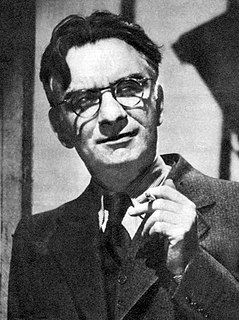A Quote by James M. Cain
A lot of novelists start late-Conrad, Pirandello, even Mark Twain. When you're young, chess is all right, and music and poetry. But novel-writing is something else. It has to be learned, but it can't be taught. This bunkum and stinkum of college creative writing courses! The academics don't know that the only thing you can do for someone who wants to write is to buy him a typewriter.
Related Quotes
When I sit down at the typewriter, I write. Someone once asked me if I had a fixed routine before I start, like setting up exercises, sharpening pencils, or having a drink of orange juice. I said, "No, the only thing I do before I start writing is to make sure that I'm close enough to the typewriter to reach the keys."
Anyone who's taken a lot of creative-writing classes, or taught creative writing, has learned to dread a certain kind of manuscript. It's long, for one thing. It has irritatingly small type; it's grammatically meticulous when it comes to everything but punctuation, for which it has developed its own system of Tolkienic elaboration.
In my mind, only one inviolable precept exists in terms of being a successful writer: you have to write. The unspoken sub-laws of that one precept are: to write, you must start writing and then finish writing. And then, most likely, start writing all over again because this writing "thing" is one long and endless ride on a really weird (but pretty awesome) carousel. Cue the calliope music.
In high school, in 1956, at the age of sixteen, we were not taught "creative writing." We were taught literature and grammar. So no one ever told me I couldn't write both prose and poetry, and I started out writing all the things I still write: poetry, prose fiction - which took me longer to get published - and non-fiction prose.
Writing is something that you don't know how to do. You sit down and it's something that happens, or it may not happen. So, how can you teach anybody how to write? It's beyond me, because you yourself don't even know if you're going to be able to. I'm always worried, well, you know, every time I go upstairs with my wine bottle. Sometimes I'll sit at that typewriter for fifteen minutes, you know. I don't go up there to write. The typewriter's up there. If it doesn't start moving, I say, well this could be the night that I hit the dust.
It took time to learn that the hard thing about writing is to let the story write itself, while one sits at the typewriter and does as little thinking as possible. It happened over and over again, and the beginner learned - when you start puzzling over an idea, and slowing down on the keys, the writing gets worse and worse.
I realized Michael was right. I mean, I am always writing in this journal. And I do compose a lot of poetry, and write a lot of notes and emails and stuff. I mean, I feel like I am always writing. I do it so much, I never even thought about it as a talent. It's just something I do all the time, like breathing.
My cure for writer's block is to step away from the thing I'm stuck on, usually a novel, and write something totally different. Besides fiction, I write poetry, screenplays, essays and journalism. It's usually not the writing itself that I'm stuck on, but thing I'm trying to write. So I often have four or five things going at once.
The most common thing I find is very brilliant, acute, young people who want to become writers but they are not writing. You know, they really badly want to write a book but they are not writing it. The only advice I can give them is to just write it, get to the end of it. And, you know, if it's not good enough, write another one.






































